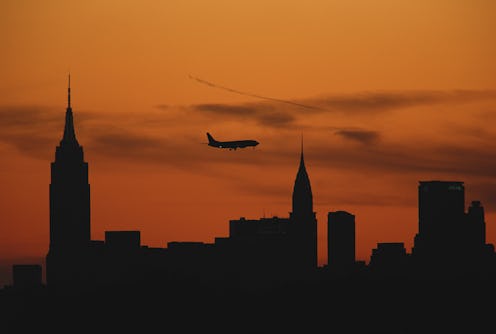News
These Countries Are Affected By The Electronics Ban

On Monday, the Transportation and Security Administration banned travelers from certain countries from taking electronic devices on U.S.-bound planes. Cellphones and medical devices are exempt from the ban, but other than that, passengers on nine airlines from 10 airports won't be allowed to take any electronics larger than a cellphone onto flights destined for America. If you're a traveler yourself, you may be wondering which countries can't bring electronics on planes if passengers are heading to the United States.
Technically, the policy applies to specific airlines as opposed to specific countries. Below is the list of the airlines to which the new policy applies. If you're traveling to the United States on any of these airlines, you'll have to put your bigger electronic devices in your checked baggage, not carry-ons:
- Royal Jordanian
- Egypt Air
- Turkish Airlines
- Saudi Arabian Airlines
- Kuwait Airways
- Royal Air Maroc
- Qatar Airways
- Emirates
- Etihad Airways
The electronics ban will cover laptops, tablets, e-readers, cameras, and all other electronic devices larger than cellphones. The only exceptions are medical devices and cellphones themselves, which will still be allowed. In addition, the policy only applies to U.S.-bound flights, as opposed to all flights, from the airlines in question. As you can see, no American airlines are affected by the policy.
The TSA started informing the relevant airlines on Monday; the Associated Press reported that the policy change had been under consideration for weeks, and that Department of Homeland Security chief John Kelly phoned lawmakers over the weekend to brief them on the "aviation security issues" that led to the ban. One official told AP that in total, 10 airports in Middle East and African countries will be affected by the prohibition.
NBC News reported that the new policy was "an adjustment based on threat intelligence." According to Fox News, the policy was prompted by an uptick in "chatter" suggesting that al Qaeda was attempting to find ways to sneak explosives on board planes.
This is, of course, only the most recent of many travel restrictions to come out of the Trump administration. In January, President Trump signed an executive order temporarily blocking travelers from seven Muslim-majority countries from entering the United States, which resulted in mass protests across the country and multiple lawsuits filed against the ban.
Those lawsuits were successful, as the Ninth Circuit Court of Appeals ultimately deemed the order unconstitutional. Weeks later, Trump followed up with a slightly less restrictive version of the same ban, and yet that order was also blocked by a federal judge before it could take effect.